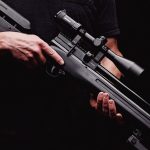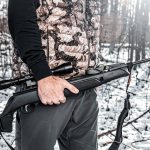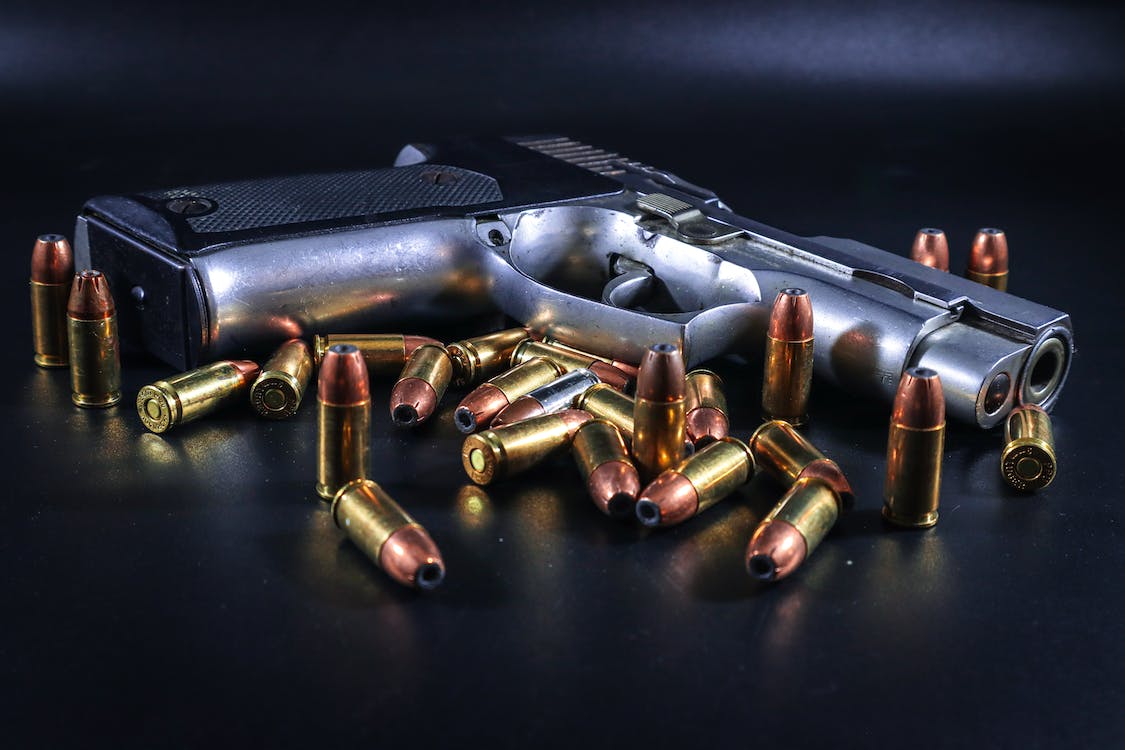Understanding the legal aspects of self defense weapons is essential in today’s society, as personal safety is becoming an increasing concern for many individuals. In order to effectively protect oneself, it is crucial to be aware of the legality surrounding these weapons, as well as the potential consequences for their misuse. Self defense weapons encompass a wide range of items, including pepper spray, tasers, and firearms, each governed by specific laws and regulations.
The origins of legal aspects surrounding self defense weapons can be traced back to ancient times when individuals relied on primitive means to protect themselves. As societies evolved, so too did the need for codified laws and regulations to regulate the use of these weapons. Today, understanding the legal framework surrounding self defense weapons is crucial to ensure personal safety within the boundaries of the law.
A startling statistic that highlights the importance of understanding the legal aspects of self defense weapons is that in many jurisdictions, ignorance of the law regarding these weapons is not considered a valid defense. This means that being unaware of the regulations governing the possession and use of self defense weapons does not exempt individuals from facing legal consequences if they are found in violation. Engaging with reliable sources and seeking legal advice can help individuals navigate through the intricate legal landscape.
One factor to consider when delving into the legal aspects of self defense weapons is the variation in laws from one jurisdiction to another. What may be legal in one state or country might be illegal in another. It is crucial to research and understand the specific laws and regulations governing self defense weapons in the area where one resides or intends to travel. This knowledge ensures compliance with the law and avert legal troubles that may arise as a result of non-compliance.
A relatable solution to navigate the legal aspects of self defense weapons is to enroll in self defense classes that incorporate legal knowledge into their curriculum. These classes not only teach individuals practical techniques for self-protection but also educate them about the legal boundaries within which these techniques should be employed. By equipping oneself with both physical skills and legal understanding, individuals can confidently defend themselves and simultaneously remain on the right side of the law.
In recognizing the significance of understanding the legal aspects of self defense weapons, it becomes apparent why individuals should prioritize obtaining knowledge in this area. Doing so not only ensures personal safety but also helps uphold the principles of legality and responsible self defense. By remaining informed about the laws governing self defense weapons, individuals can protect themselves without inadvertently violating regulations designed to maintain public safety.
What are the Legal Aspects of Self Defense Weapons? Exploring Laws and Regulations
Legal aspects of self defense weapons encompass the rules and regulations that govern the possession and use of these tools for personal protection. Understanding the legal framework surrounding self defense weapons is crucial to ensure compliance and avoid any potential legal repercussions. This article analyzes the various legal aspects related to self defense weapons, providing an in-depth exploration of the laws, restrictions, and considerations that individuals need to be aware of. Continue reading to gain a comprehensive understanding of the legalities associated with self defense weapons.
Understanding Legal Aspects of Self Defense Weapons
When it comes to personal safety, many individuals choose to arm themselves with self defense weapons. These tools can provide a sense of security and empowerment, but it is crucial to understand the legal aspects surrounding their use. Whether it’s pepper spray, stun guns, or personal alarms, each self defense weapon has its own set of legal considerations that vary from jurisdiction to jurisdiction. To ensure you are well-informed, let’s dive into the answer to understanding the legal aspects of self defense weapons.
1. Pepper Spray
Pepper spray is one of the most popular self defense weapons due to its effectiveness and accessibility. However, its legal status differs from place to place. While many states allow the possession and use of pepper spray for self defense, some have restrictions on the concentration of its active ingredient. Additionally, certain jurisdictions may require individuals to obtain permits or have specific training before they can carry or use pepper spray. It is crucial to familiarize yourself with your local laws to ensure you are using this self defense weapon responsibly and within the confines of the law.
2. Stun Guns
Stun guns, electric shock devices used to incapacitate an attacker, are another popular self defense option. However, their legality can vary significantly. While some states permit carrying and using stun guns openly or discreetly, others have placed restrictions on their possession. Some jurisdictions require permits, and in some cases, even ban their use entirely. Therefore, it is essential to research your local laws and understand the specific regulations regarding stun guns in your area before purchasing or using one.
3. Personal Alarms
Personal alarms, which emit loud sounds to attract attention and deter assailants, are legal in most places. These devices are generally considered non-lethal and non-violent, making them widely accepted as a self defense tool. However, it is still important to check your local laws to ensure that personal alarms are not restricted or regulated in any way.
4. Best Practices for Using Self Defense Weapons
- Know the laws: Research and understand the specific laws governing self defense weapons in your jurisdiction.
- Get proper training: If your local laws require training for the use of self defense weapons, ensure you receive appropriate instruction.
- Use proportionate force: Only use self defense weapons when necessary and in situations where you reasonably believe there is an imminent threat to your safety.
- Be mindful of bystanders: When using self defense weapons, take care not to harm innocent bystanders who may be in close proximity.
- Maintain your self defense weapon: Regularly check and maintain your self defense weapons to ensure they are functioning properly and ready for use.
Understanding the legal aspects of self defense weapons is crucial to safeguarding yourself while staying on the right side of the law. By familiarizing yourself with local laws and adhering to best practices for using these weapons, you can maximize your personal safety and be prepared to defend yourself if necessary.
FAQs about Understanding Legal Aspects of Self Defense Weapons
1. Is it legal to carry self defense weapons?
Yes, it is generally legal to carry self defense weapons as long as they are legal in your jurisdiction. However, specific laws may vary, so it’s essential to check your local regulations.
2. What are some examples of self defense weapons?
Examples of self defense weapons include pepper spray, stun guns, tasers, collapsible batons, personal alarms, and self defense keychains.
3. Are there any restrictions on self defense weapons?
Yes, there may be restrictions on self defense weapons depending on your location. Some common restrictions include age limits, prohibited areas (such as schools or government buildings), and limitations on the size or strength of the weapon.
4. Can I use a self defense weapon against anyone?
Self defense weapons should only be used in situations where you are in imminent danger and need to protect yourself. It is important to know your local laws regarding the use of force and when it is legally justified to use a self defense weapon.
5. Do I need a permit to carry a self defense weapon?
Some jurisdictions may require a permit to carry certain self defense weapons, such as handguns or concealed weapons. Check with your local law enforcement or government authority to determine if a permit is needed.
6. Are there any non-lethal self defense weapons?
Yes, many self defense weapons are designed to be non-lethal, such as pepper spray, stun guns, and personal alarms. These weapons aim to disable or distract an attacker temporarily, allowing you to escape or seek help.
7. Can I purchase self defense weapons online?
Yes, you can often purchase self defense weapons online. However, some weapons may have restrictions on shipping to certain locations, so it’s important to consider the local laws and regulations before making a purchase.
8. What should I do if I am unsure about the legality of a self defense weapon?
If you are unsure about the legality of a self defense weapon, it is best to consult local law enforcement or legal professionals in your jurisdiction. They can provide accurate and up-to-date information regarding the legality of specific weapons.
9. Can using a self defense weapon ever result in legal consequences for me?
In some situations, the use of a self defense weapon may lead to legal consequences, even if you used it in self defense. It is crucial to familiarize yourself with your local laws and understand the circumstances under which self defense is legally justified.
10. Are self defense weapons a guaranteed solution to personal safety?
No, self defense weapons are tools that can aid in personal safety, but they do not guarantee protection. It is important to use them responsibly, be aware of your surroundings, and consider other factors such as self defense training, personal security measures, and avoidance of risky situations.
Conclusion
Understanding the legal aspects of self defense weapons is crucial for individuals seeking to protect themselves. Through this article, we have gained valuable insights into the best practices for using such weapons. Firstly, it is essential to familiarize oneself with the specific laws and regulations surrounding self defense weapons in their jurisdiction. This includes understanding the legality of owning, carrying, and using different types of weapons like pepper sprays, stun guns, and tasers.
Secondly, maintaining a responsible attitude towards self defense weapons is of utmost importance. It is crucial to assess one’s capabilities and choose a weapon that aligns with their skills and comfort level. Regular training in handling and using the chosen weapon is essential to ensure confidence and effectiveness. Additionally, being aware of the limitations and potential risks associated with self defense weapons is vital to make informed decisions and avoid unnecessary harm.
Furthermore, the article highlighted the importance of considering non-lethal options whenever possible. This includes de-escalation techniques, using non-violent self defense tools, and seeking alternatives to physical confrontation. Understanding the lawful use of force and employing self defense weapons as a last resort can help individuals stay within legal boundaries.
Overall, a comprehensive understanding of the legal aspects involved in self defense weapons coupled with responsible and informed practices can empower individuals to effectively protect themselves while staying within the bounds of the law. By adhering to best practices and acquiring necessary knowledge, individuals can confidently navigate the complexities surrounding the use of self defense weapons with prudence and caution.








![Byrna SD [Self Defense] Kinetic Launcher Ultimate Bundle - Non Lethal Kinetic Projectile Launcher, Home Defense, Personal Defense | Proudly Assembled in The USA](https://m.media-amazon.com/images/I/815OXIA-gNL._AC_SL520_.jpg)





